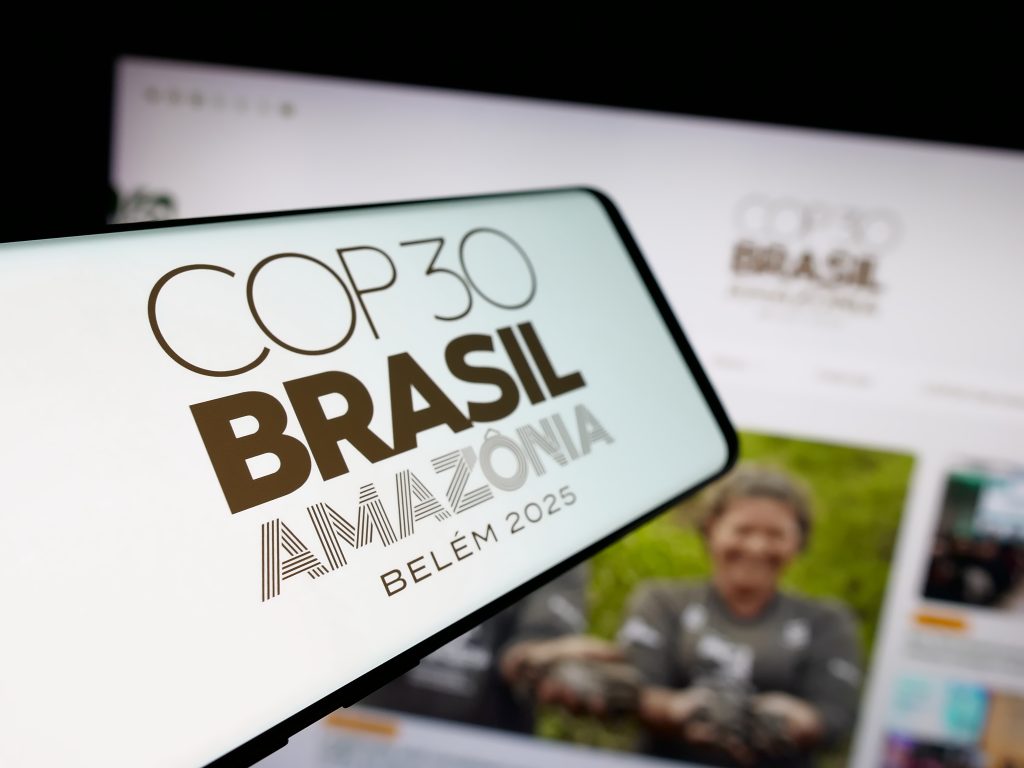COP30 will take place in Belém, Brazil, from November 10th to 21st, 2025. This is the annual UN Conference of the Parties on Climate Change and a key element of the global climate debate. During this time, the Blue Zone will host a dedicated space dedicated to water as a key climate factor: the Water for Climate Pavilion.
What is the importance of water and drought in the context of COP30?
Problems related to drought and water scarcity are becoming increasingly visible not only globally but also in Poland. As part of the “Stop Drought! Start Retention!” campaign, we are highlighting that rainfall deficiencies and lower groundwater and soil levels are not just a seasonal summer phenomenon, but a year-round challenge in our country.
At COP30, the role of water will be emphasized through, among other things:
- incorporating the issue of water scarcity and appropriate water management into official negotiations on adaptation and mitigation of the effects of climate change
- moving from debate to action – water is part of many sectors (agriculture, infrastructure, ecology, urban planning, etc.), and therefore becomes key to counteracting the effects of climate change
- discussions on the financing of water-related activities (retention, water infrastructure, etc.) as an integral part of the climate agenda
What did COP29 bring and what conclusions can we draw ahead of COP30?
During COP29 in Baku, Azerbaijan (November 11-22, 2024), world delegations made many important decisions. Among other things, a new climate finance target was established, namely, expanding the previous commitment of $100 billion annually for developing countries. This sum is expected to reach at least $300 billion annually by 2035.
Furthermore, the urgent need to include water and water management in national climate plans (NDCs) and adaptation plans (NAPs) was emphasized, demonstrating that the issue of water scarcity and the need to retain water is becoming increasingly visible in every corner of the world. These observations are crucial for the “Stop Drought! Start Retention!” campaign, as they demonstrate that the issue of combating drought is gaining prominence on the global stage. However, it still requires our full commitment to achieving all the set goals for the good of all societies.
What’s coming up at COP30 and what is the role of “Water for Climate”?
At COP30 in Belém, the Water for Climate Pavilion will play a key role. Its key areas include:
- continuing the Baku Dialogue on Water for Climate Action to ensure continuity and coherence between COPs
- setting specific indicators on water-related issues (UAE–Belém Framework for Global Climate Resilience)
- strengthening the role of water in updated National Climate Commitments (NDCs) and Adaptation Plans (NAPs), ensuring that water management is an integral part of climate action
- agreeing that reports (such as the Biennial Transparency Reports) will include data on water, retention, drought, and water levels, so that water is visible in monitoring and accounting
What does this mean for Poland and the “Stop Drought!” campaign?
From a Polish perspective, the topic of COP30 and the Water for Climate Pavilion opens up several important opportunities. One of the most important issues is integrating water retention, drought, and water management into a broader global narrative. This will allow us to draw the attention of the international community to the fact that the problem of drought is not just local, but affects us all, on every continent and in every country. Therefore, we must act now.
Another important point on the agenda is the opportunity to leverage global experiences and financing mechanisms. If the topic of water is more prominently integrated into climate financing, it could open up new avenues for Poland, among others (e.g., investments in water retention and drought mitigation).
Furthermore, this is a good opportunity to increase visibility. After all, the topic of drought, water management, and climate is part of global interests, not just national ones. Consequently, we can use this opportunity to improve education and increase communication. COP30 is the perfect time to emphasize that local actions (e.g., municipal water retention, water utilities, urban greenery) are reflected in global trends and goals.
COP30 and the Water for Climate Pavilion are an important space where water, drought, and water management can receive the attention they deserve on the international stage. The previous edition of the conference, COP29, demonstrated that water is an essential element of the conversation on combating climate change. However, we know that decisive and concrete action is still needed. This is why the UN climate change conference is so important – it is there that the most important global decisions on combating drought worldwide can be made.

 PL
PL

